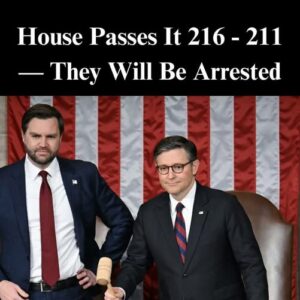Tragedy has a way of magnifying fault lines. In the days following the assassination of conservative activist Charlie Kirk, America has been left with shock, grief, and a renewed confrontation with its own political divisions. While Kirk’s supporters mourned the loss of a 31-year-old father, husband, and firebrand voice of the right, leaders across the country wrestled with how to respond to the violence.
And among those voices, former President Barack Obama offered one of the most striking interventions. Speaking not from the White House but from a stage in Pennsylvania, Obama called the killing a “horrific tragedy” and urged Americans to confront what he described as a “political crisis” — one rooted not only in acts of violence but also in the language that fuels them.
The Shock of a Campus Assassination
Charlie Kirk was no stranger to controversy. As the founder of Turning Point USA, he had built a career around bringing conservative ideas onto college campuses, often sparking fiery debates with students who opposed him. His “American Comeback Tour” was designed to reignite his campus presence after years of focusing on media and political activism.
But the first stop of that tour — Utah Valley University, September 10 — turned deadly. As Kirk engaged a crowd in an outdoor courtyard, a shot rang out. Struck in the neck, he collapsed instantly. His security team rushed him to a nearby hospital, but efforts to save him failed.
The assassination sent shockwaves through the political world. Allies of former President Donald Trump — who was among the first to confirm Kirk’s death publicly — framed the killing as proof of a rising tide of anti-conservative violence. Critics, even those who clashed with Kirk ideologically, condemned the act as an attack on free speech and democratic debate.
The Alleged Killer
Within days, the FBI and local authorities announced they had a suspect: Tyler Robinson, a 22-year-old Utah resident. Investigators revealed that Robinson had tracked Kirk’s visit to Utah well before the event. A family member described him as becoming “more political” in recent years, raising concerns about radicalization.
Robinson has been formally charged with seven counts:
Aggravated murder
Felony discharge of a firearm
Obstruction of justice – moving a firearm
Obstruction of justice – disposing of clothing
Witness tampering – telling a roommate to delete messages
Witness tampering – telling a roommate to stay quiet
Committing violent crime when children are present
Robinson appeared in court via video link on September 16, marking the beginning of what is expected to be one of the most closely watched trials in recent memory.
Obama’s Entry Into the Conversation
While conservative figures quickly cast blame on Democratic rhetoric, Obama took a more deliberate approach. Appearing at an event in Erie, Pennsylvania, the former president addressed the assassination directly.
“Look, obviously I didn’t know Charlie Kirk,” Obama began, according to a transcript published by CNN. “I was generally aware of some of his ideas. I think those ideas were wrong, but that doesn’t negate the fact that what happened was a tragedy and that I mourn for him and his family.”
Obama acknowledged Kirk’s humanity — a young man with two small children, a wife, and a wide circle of friends and supporters. “We have to extend grace to people during their period of mourning and shock,” he said.
But he did not stop there.
A Call for Restraint
Obama used the moment to pivot toward a larger message about how America handles disagreement.
“I think at moments like this, when tensions are high, then part of the job of the president is to pull people together,” he told the crowd.
He went further, urging Americans to “respect other people’s right to say things that we profoundly disagree with.”
For a former president often accused by critics of fueling partisanship, the words carried extra weight. They echoed his 2008 campaign rhetoric of unity but were sharpened by the reality of a political assassination in 2025.
Warning Against Rhetoric
Yet Obama also took aim at current political leaders, warning that the language coming from the highest levels of government was contributing to the nation’s polarization.
“When I hear not just our current president, but his aides, who have a history of calling political opponents ‘vermin,’ enemies who need to be ‘targeted,’ that speaks to a broader problem that we have right now and something that we’re going to have to grapple with, all of us,” Obama said.
The remarks were clearly directed at Trump and his inner circle, whose rhetoric has often described political rivals in combative, dehumanizing terms.
White House Pushback
The Trump White House wasted no time in firing back. In a statement to the BBC, officials dismissed Obama’s remarks:
“Obama used every opportunity to sow division and pit Americans against each other. His division has inspired generations of Democrats to slander their opponents as ‘deplorables,’ or ‘fascists,’ or ‘Nazis.’”
For the administration, Obama’s call for respect was overshadowed by what they saw as hypocrisy — a former president blaming Trump while ignoring the role Democrats have played in inflaming tensions.
The Political Crisis
In framing the assassination as evidence of a “political crisis,” Obama tapped into a growing sense that the country’s divisions are reaching unsustainable levels. The killing of a high-profile conservative activist, carried out on a university campus in broad daylight, has left many Americans fearing that the lines between heated rhetoric and outright violence are vanishing.
For some, Obama’s appeal for unity is a necessary reminder that disagreement need not devolve into destruction. For others, it is too little, too late — a lofty sentiment that fails to grapple with the urgency of the moment.
Kirk’s Legacy Amid the Fallout
While leaders spar over language, Erika Kirk and her two children confront a far more personal crisis. In her first statement after her husband’s death, Erika vowed that his mission would continue:
“The movement my husband built will not die. I refuse to let that happen. No one will ever forget my husband’s name. And I will make sure of it.”
Her words have already galvanized Turning Point USA supporters, many of whom see Kirk’s death as a rallying cry rather than an ending.
Final Reflections
Barack Obama’s remarks in Pennsylvania illustrate the delicate balance leaders must strike in the aftermath of political violence. He offered sympathy to a family in mourning, defended the principle of free expression, and criticized the escalating rhetoric he believes is tearing the country apart.
The response — immediate pushback from the Trump White House and broader partisan debates — reveals just how difficult that balance is to achieve.
Charlie Kirk’s assassination was not just the silencing of a man but the ignition of a wider reckoning over how Americans talk about, fight with, and ultimately live alongside one another. Obama’s words may not heal those divides, but they underscore the gravity of the moment: a nation at risk of losing not only its leaders to bullets but its democracy to words.





